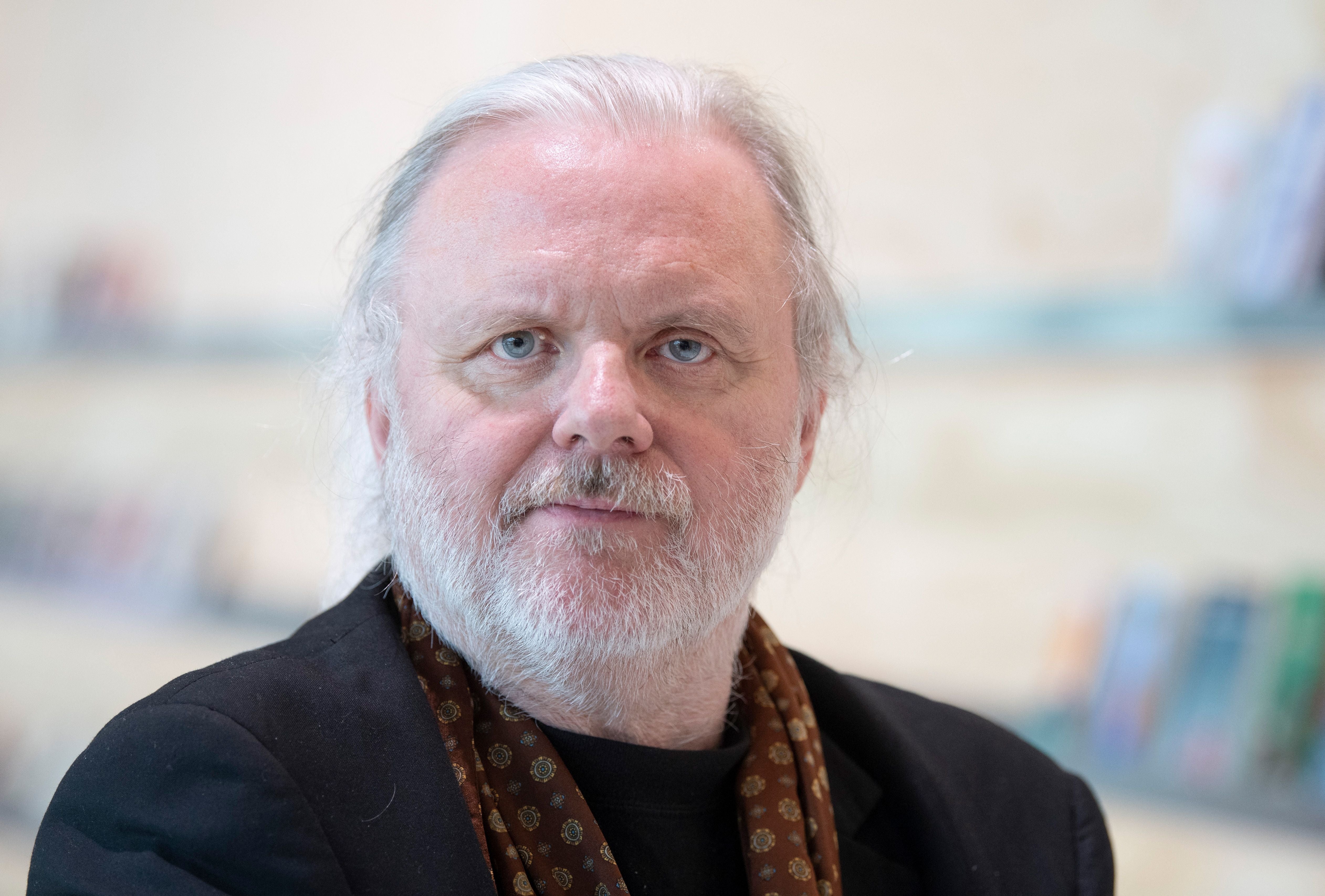Norwegian author and playwright Jon Fosse awarded Nobel Prize in Literature
Norwegian writer was given the prize ‘for his innovative plays and prose which give voice to the unsayable’
Norwegian author and playwright Jon Fosse has been awarded the 2023 Nobel Prize in Literature.
The author was announced as the winner in a ceremony held at the Swedish Academy in Stockholm on Thursday (6 October), which was also livestreamed online.
The prize consists of a gold medal, diploma and cash sum, and is awarded each year to “to the person who, in the field of literature, produced the most outstanding work in an idealistic direction”. The value of the monetary prize changes from year to year, based on the Nobel Foundation’s finances.
Fosse was informed of the win via telephone. “Not every laureate believes me when I make the call,” the announcer said, “but he was prepared to have confidence until one o’clock. He was driving in the countryside in Norway, and we had the opportunity to start speaking about practical matters for the Nobel week in December.”
Over the course of his career, Fosse, 64, has written dozens of acclaimed plays, novels, essays and books of poetry. His early work was often best known within continental Europe, but in recent years he has also enjoyed a blossoming reputation in English-speaking countries.
While nominees are not announced in advance – in fact, the full nominees list is not revealed to the public until 50 years have passed – this year’s frontrunners had been tipped to include British-Indian novelist Salman Rushdie, 76, Canadian writer Margaret Atwood, 83, Japan’s Haruki Murakami, 74, Chinese writer Can Xue, 70, and Romania’s Mircea Cartarescu, 67.
Last year, the prize was given to French author Annie Ernaux, known for writing La Place and Les Années.
Fosse said that he was “overwhelmed and somewhat frightened” at receiving the award.
His 2021 novel A New Name: Septology VI-VII, translated into English by Damion Searls, was shortlisted for the International Booker Prize. The work concluded a three-book septology that has been described as his “magnum opus” in prose, and takes the form of a lengthy monologue in which an elderly artist speaks to himself as another person.
A spokesperson for the Nobel committee said: “[Fosse’s] immense oeuvre, written in Norwegian Nynorsk and spanning a variety of genres, consists of a wealth of plays, novels, poetry collections, essays, children’s books and translations. While he is today one of the most widely performed playwrights in the world, he has also become increasingly recognised for his prose.”
Futher contextualising Fosse’s win on social media, the Nobel organisation wrote: “Jon Fosse – awarded the 2023 #NobelPrize in Literature – has much in common with his great precursor in Norwegian Nynorsk literature Tarjei Vesaas. Fosse combines strong local ties, both linguistic and geographic, with modernist artistic techniques.
“He includes in his Wahlverwandschaften such names as Samuel Beckett, Thomas Bernhard and Georg Trakl. While Fosse shares the negative outlook of his predecessors, his particular gnostic vision cannot be said to result in a nihilistic contempt of the world. Indeed, there is great warmth and humour in his work, and a naïve vulnerability to his stark images of human experience.”

Speaking to The Independent in 2011, Fosse reflected on the rarity with which his plays were staged in the UK. In the time since, his work has been made widely available transated into English.
“My plays travel extremely well,” he said “And they have been well received everywhere – except here in England.”
Reflecting on the different processes involved in writing prose and works for theatre, Fosse added: “In a novel, you have to use words all the time. In a play, you can use the pauses, the breaks and the silences: what’s not said, which is what I’m saying something about, even in my prose. That was a revelation.”

Fosse’s plays are written in New Norwegian, or Nynorsk language, a synthetic tongue used for dramatisation. “It is never really spoken by anyone,” he explained. “It’s the same with French and German theatre: their theatrical language is not the way you speak in the streets.”
He was also a recipient of France’s National Order of Merit in 2007, and was named the winner of the prestigious Ibsen prize in 2010.
The announcement of the Laurette, made by Mats Malm, the permanent secretary of the Swedish Academy, comes amid a week of other Nobel announcements. On Monday (2 October), the Nobel Prize in Physiology or Medicine was awarded to Katalin Kariko (Hungary) and Drew Weissman (US) for their work that led to the development of the first mRNA Covid vaccines.
Tuesday saw the Physics prize go to Pierre Agostini, Ferenc Krausz and Anne L’Huillier, who collectively made breakthroughs in “experimental methods that generate attosecond pulses of light for the study of electron dynamics in matter”.
The Nobel Prize in Chemistry was awarded the followig day to scientists Moungi Bawendi, Louis Brus and Alexei Ekimov “for the discovery and synthesis of quantum dots”, which have applications in computer technology and healthcare. The news was, however, announced early in a rare blunder for the organisation.
Join our commenting forum
Join thought-provoking conversations, follow other Independent readers and see their replies
Comments


Bookmark popover
Removed from bookmarks